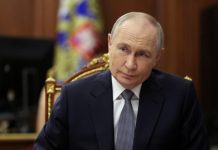There has been a lot of debate in the Western press over whether to supply Ukraine with defensive arms. How to make sense of all the editorialising? Which op-eds and columns should one take seriously? Consider the following questions.
1. Has the author published anything about Ukraine prior to 2013? This war is not being fought in a vacuum. Knowledge of the ‘theatre’ of conflict matters. Abstract models and theoretical systems do not wage war; people do.
2. Does the author characterise Ukraine as a country with agency, independence and sovereignty in the content of his/her analysis? That is, are Ukrainians subjects of the story? A prescriptive assessment about a war is intellectually suspect when it casts the country in which the war is taking place as a passive object or superfluous detail.
3. Does the author mention the Budapest Memorandum of 1994 in his/her analysis? While not a treaty or security guarantee, the Memorandum is the political expression of a ‘commitment’ on the part of the United States, the United Kingdom and the Russian Federation ‘to provide assistance to Ukraine… if Ukraine should become a victim of aggression’. Failing to cite such critical background in a debate about military ‘assistance’ is a sign of a lack of professionalism.
4. Does the author make even one mention of Russia’s forcible seizure and annexation of Crimea from Ukraine in his/her analysis? One of the first violations in Europe of the ‘territorial integrity norm’ since the emergence of the UN Charter in 1945 is no incidental detail in a debate about an escalating war between Europe’s two largest countries. If it is nowhere to be found, caveat emptor.
5. Does the author frequently use the term ‘great power’ but studiously avoid the term ‘international law’? If so, the analysis is essentially irrelevant to a debate that centres on responses to egregious and ongoing violations of international law. Similarly: does s/he refer to Russia as a ‘great power’ but at the same time describe the country as, for instance, ‘aging, depopulating, and declining… trying to cling to whatever international influence it still possesses’ (Stephen Walt)? Such formulations are incoherent.
6. Has the author referred, for instance, to a present attempt to ‘march NATO and the European Union up to Russia’s doorstep’ (John Mearsheimer) without noting that NATO and the EU have been on Russia’s doorstep since 2004, when Estonia, Latvia and Lithuania joined NATO and the EU? If so, the analysis is uninformed.
7. Does the author argue that the crisis in Ukraine began, for instance, ‘when the United States and European Union tried to move Ukraine out of Russia’s orbit’ (Walt) without appearing to know that 1) the ‘orbits’ of Russia and the EU already intersect in the Partnership and Cooperation Agreement they concluded in 1997 and that 2) the putatively ‘pro-Russian’ Ukrainian president Viktor Yanukovych and his Party of Regions actively sought EU Association themselves?
Well-intentioned people can disagree about the means by which constructive and vigorous pressure should be brought to bear on the Russian Federation, which has been waging a war of aggression against the Ukrainian state for a year. But if you find that a pundit or International Relations ‘expert’ has failed most of these basic questions, please look elsewhere for more serious and professional analyses of this urgent and grave issue.
By Dr Rory Finnin, chair of the Cambridge Committee for Russian and East European Studies, University of Cambridge, www.huffingtonpost.co.uk.





